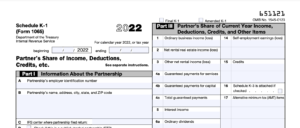Common Tax Documents:
- W-2 Form: Issued by employers to employees, showing wages earned and taxes withheld throughout the year. Used for reporting income on personal tax returns.
- 1099 Forms: Various types including:
- 1099-INT: Reports interest income earned from bank accounts.
- 1099-DIV: Reports dividend income from investments.
- 1099-MISC: Reports miscellaneous income, such as freelance earnings or rent payments.
- 1099-R: Reports distributions from retirement accounts.
- 1098 Form:
- 1098 Mortgage Interest Statement: Shows mortgage interest paid during the year, used for deducting mortgage interest on tax returns.
- Bank and Investment Statements: Summarizes interest, dividends, and capital gains earned from bank accounts, brokerage accounts, and investment funds.
- Property Tax Statements: Documenting property taxes paid on real estate owned, which may be deductible on tax returns.
- Receipts for Charitable Contributions: Used to claim deductions for charitable donations made throughout the year.
- Health Insurance Forms:
- Form 1095-A: For individuals who obtained health insurance through the Health Insurance Marketplace.
- Form 1095-B or 1095-C: Provided by insurers or employers to report health insurance coverage.
- Educational Documents:
- Form 1098-T: Reports tuition payments and other educational expenses for claiming education-related tax credits.
Less Common Tax Documents:
- K-1 Forms: Received by partners in partnerships, shareholders in S corporations, and beneficiaries of trusts and estates, reporting income, deductions, and credits from these entities.
- SSA-1099 Form: Reports Social Security benefits received during the year.
- Unemployment Compensation Statements: Reporting income received from unemployment benefits, potentially taxable.
- 1099-C Form: Issued by lenders when canceling debt, potentially taxable as income.
- Foreign Income Documents:
- Form 2555: For individuals claiming the Foreign Earned Income Exclusion
- Form 1116: For claiming the Foreign Tax Credit.
- HSA or FSA Statements: Detailing contributions and withdrawals from Health Savings Accounts (HSA) or Flexible Spending Accounts (FSA).
- Rental Income and Expense Records: Including rental income, expenses, and depreciation for reporting rental property income or loss.
- Gains and Losses Records: Documentation of gains and losses from the sale of assets such as stocks, bonds, or real estate.



